Health Insurance
More Than 1 in 10 Americans Feel Extreme Loneliness Heading Into Winter Holidays, Primarily Driven by Pandemic Isolation
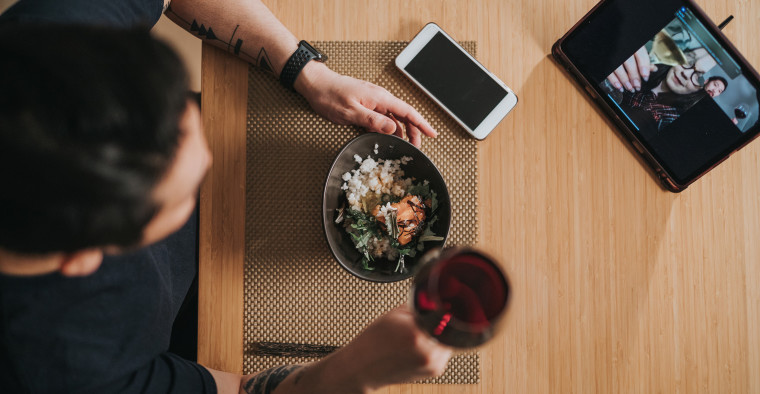
Almost 1 in 4 Americans won’t see family or friends for any of the upcoming holidays, which could help explain why more than 1 in 10 are reporting experiencing severe loneliness.
ValuePenguin surveyed more than 2,000 consumers about their loneliness to gauge what effects the resurgent coronavirus pandemic and the upcoming holiday season will have on people’s mental health. Seven in 10 reported feeling some form of loneliness.
More than half of Americans said their loneliness stems from the isolation during this crisis. The majority who won't be seeing family or friends for some or all of this year's winter holidays said concerns about minimizing exposure to the virus led to the decision.
Key findings
- 11% of consumers report feeling extreme loneliness heading into the winter holidays, with 70% reporting various stages of loneliness. Generation Zers, millennials and Generation Xers were the most likely to feel the strongest loneliness.
- Nearly seven in 10 Americans are worried about their family or friends feeling lonely during the holidays this year, with more than two in 10 of them being very worried. Older generations were the least likely to worry about their families feeling lonely.
- Consumers are practicing forms of self-care to manage stress and loneliness, including watching TV or movies (60%), exercising (40%) and reading (39%), but only 7% said they’re talking to a therapist or counselor. Additionally, 19% of those 75 and older said they don’t do anything to manage stress or loneliness.
- Some consumers’ holiday loneliness may be related to the season, as 13% said they’ve been diagnosed with seasonal affective disorder, which is characterized by depression at the same time each year. Another 29% haven’t been diagnosed but experience those symptoms.
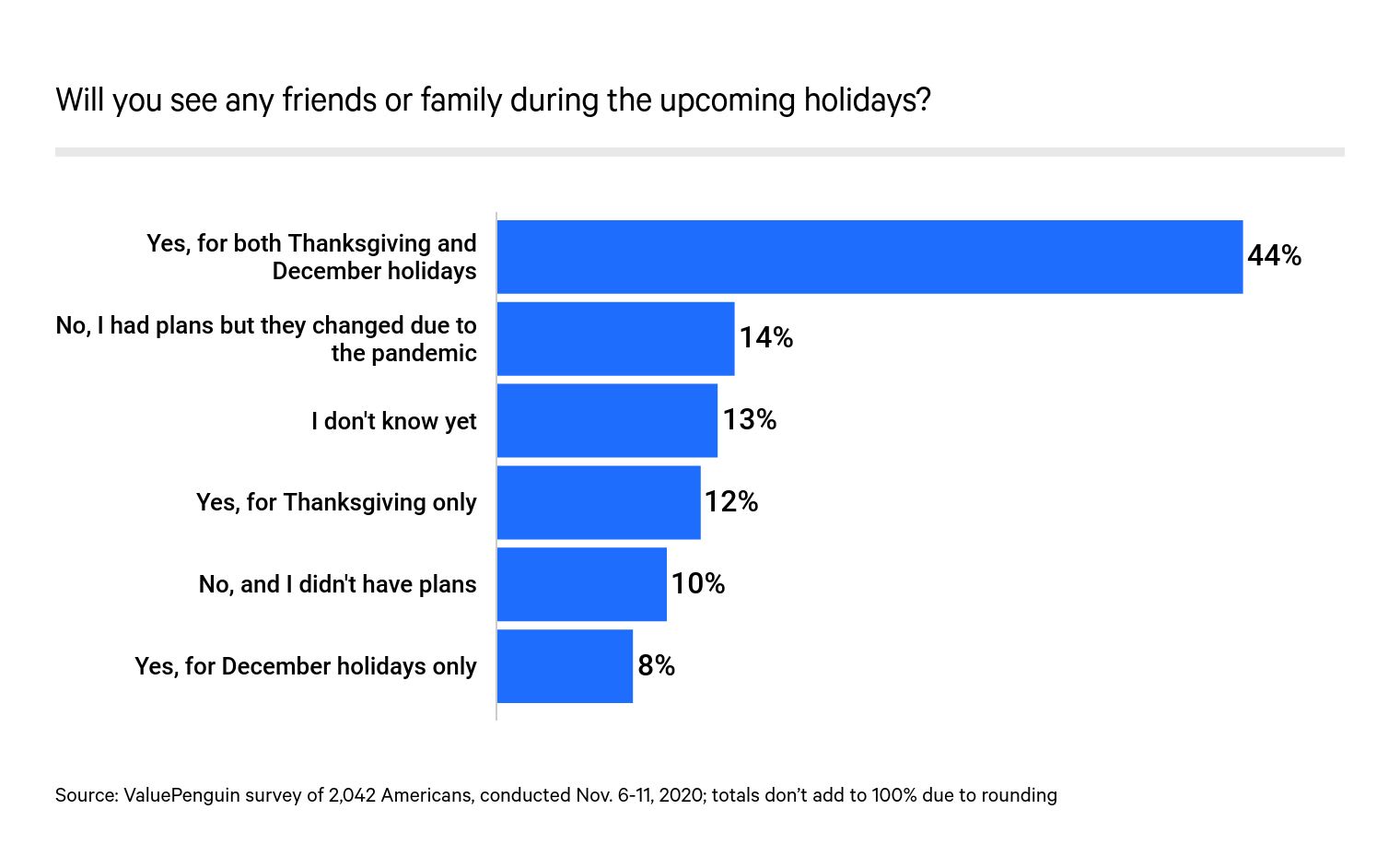
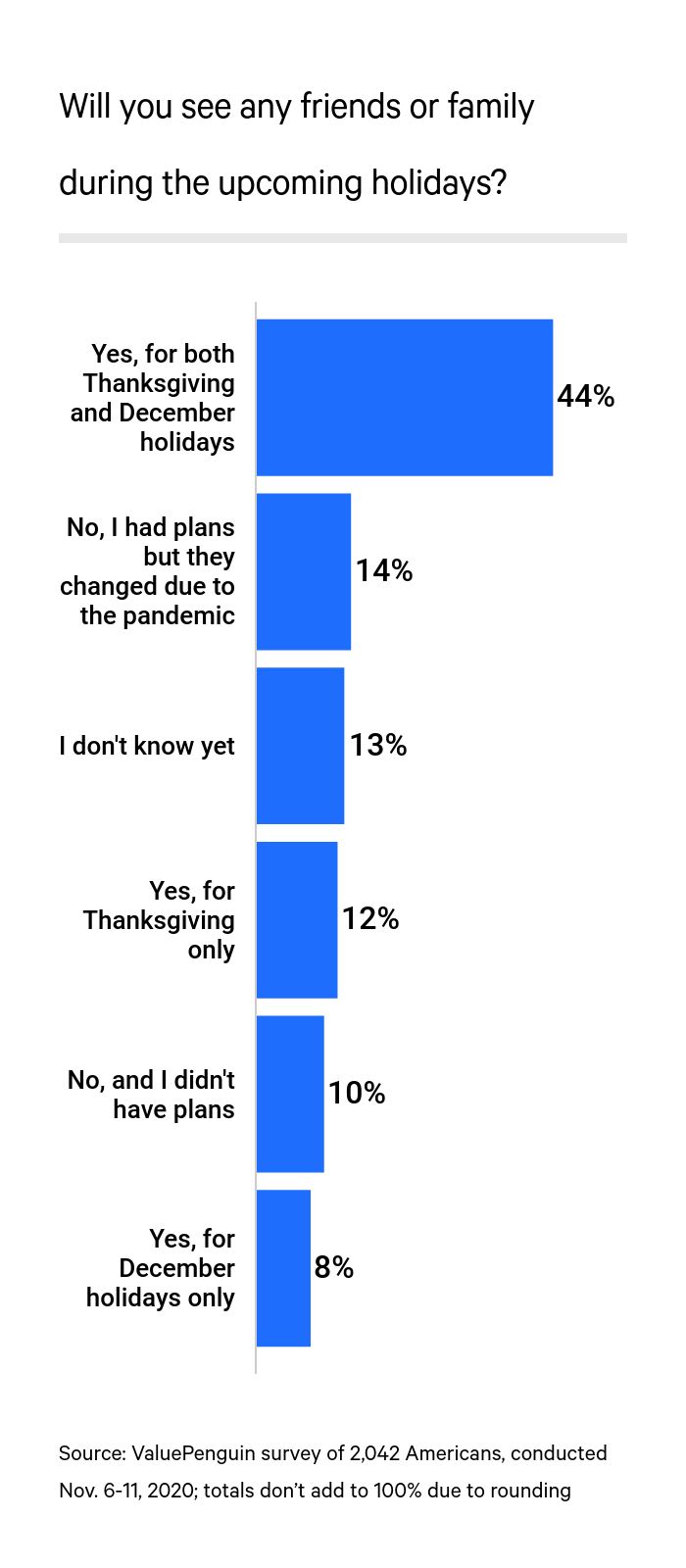
7 in 10 report feeling some loneliness heading into the holiday season, citing a range of factors
ValuePenguin asked respondents to evaluate their loneliness on a scale of one to five. While just 30% of people said they didn't feel lonely — represented by a score of one — respondents more commonly rated their feelings between two and four. In fact, 20% of people, on average, described themselves in each of these ranges.
Eleven percent of people feel extremely lonely heading into the winter holidays. Young people were more likely to report this, with 15% of Gen Zers responding as such, compared with an average of 9% for millennials, Gen Xers, baby boomers and the silent generation.
>>Read an in-depth analysis of loneliness among the oldest Americans.
Members of Gen Z and the silent generation were most heavily affected by sources of holiday-season stress. An average of 26% of both generations admitted they were affected by the eight sources of stress and loneliness we included in our survey.
By far, most people (51%) highlighted the isolation brought by the coronavirus pandemic as a major source of their loneliness. Looking further, 25% said they felt lonely this year because of the loss of a loved one, while 24% responded that the weather played a part. Even 21% of people said the election was a source of their loneliness.
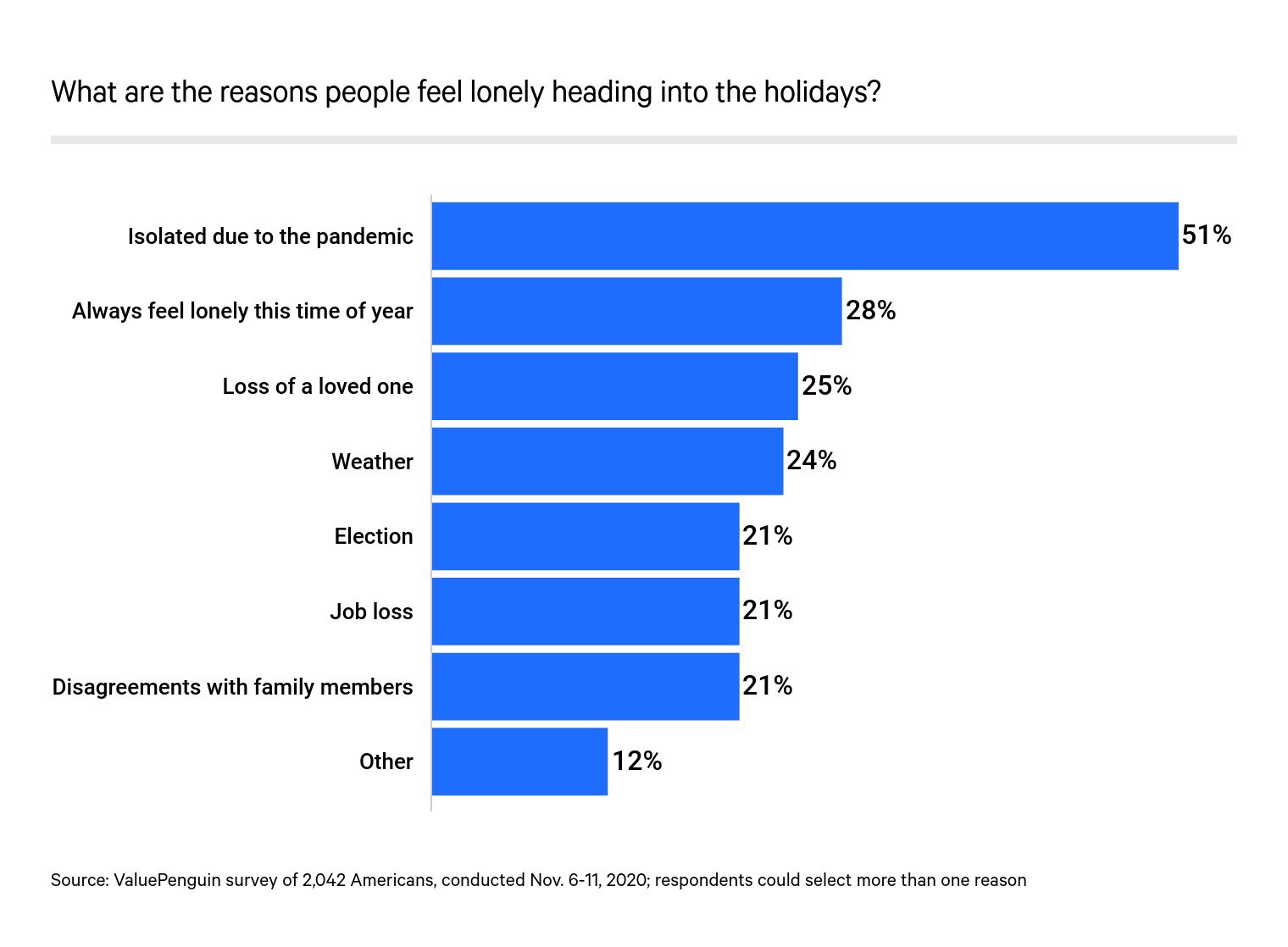
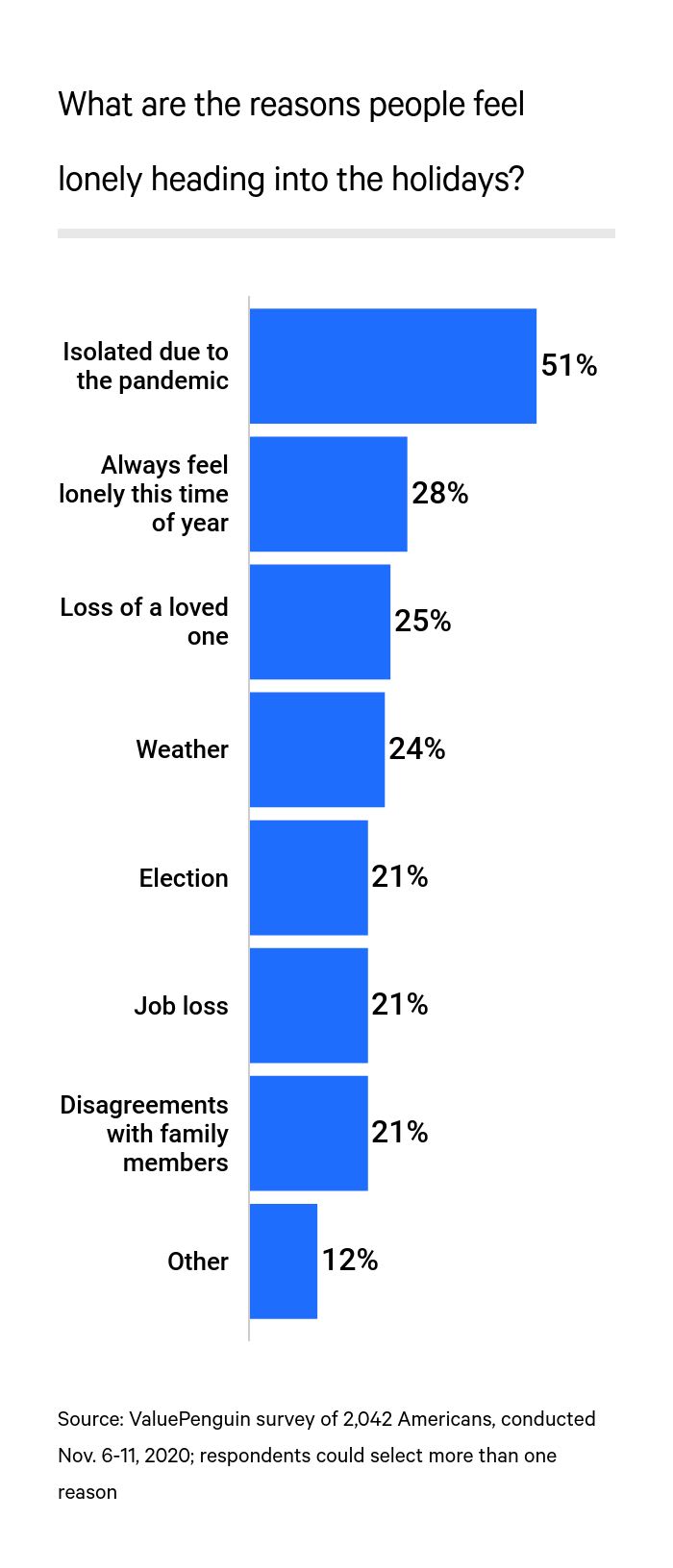
It was also likely that people felt uneasy about the mental states of their loved ones. Sixty-nine percent were worried about the loneliness their family members or friends would feel during the holidays. Gen Zers were more likely than their counterparts to have the strongest feelings of concern for their loved ones, with 33% of these respondents saying they were very worried about their friends or family.
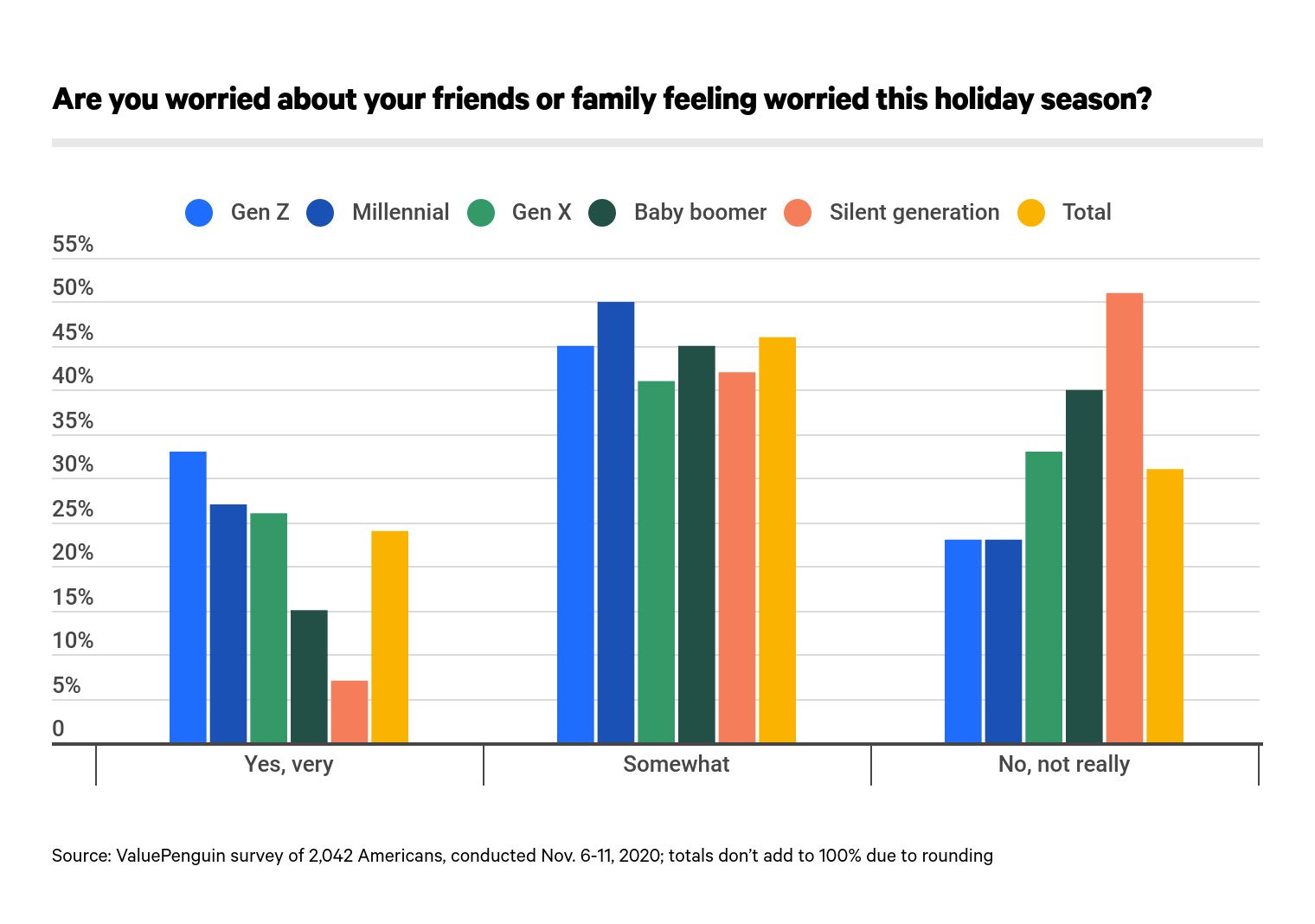
Just 18% expect to feel less lonely this year than they did last year
This year, one-third of people expected to feel more lonely around the holidays than they did last year, while less than one-fifth expected to feel a diminished sense of loneliness.
The feeling of foreboding was strongest among millennials, where 38% voiced concerns about this year. The same percentage of Gen Zers and Gen Xers — 36% — felt the same way.
While Gen Zers were most likely to feel extremely lonely and were among the most likely to believe this year would be worse than others for loneliness, one-fourth believed they'd feel less lonely this year.
A disrupted holiday season may be contributing to the sense that this year will be uniquely lonely. In fact, 24% of Americans won't see family or friends for any of the upcoming holidays. Of these, 14% had plans but changed them because of the pandemic. And 63% said they wouldn't see their families for at least one holiday to minimize the risk of exposure to the coronavirus, with another 11% citing it was a mutual decision — which could boost that 63% figure higher.
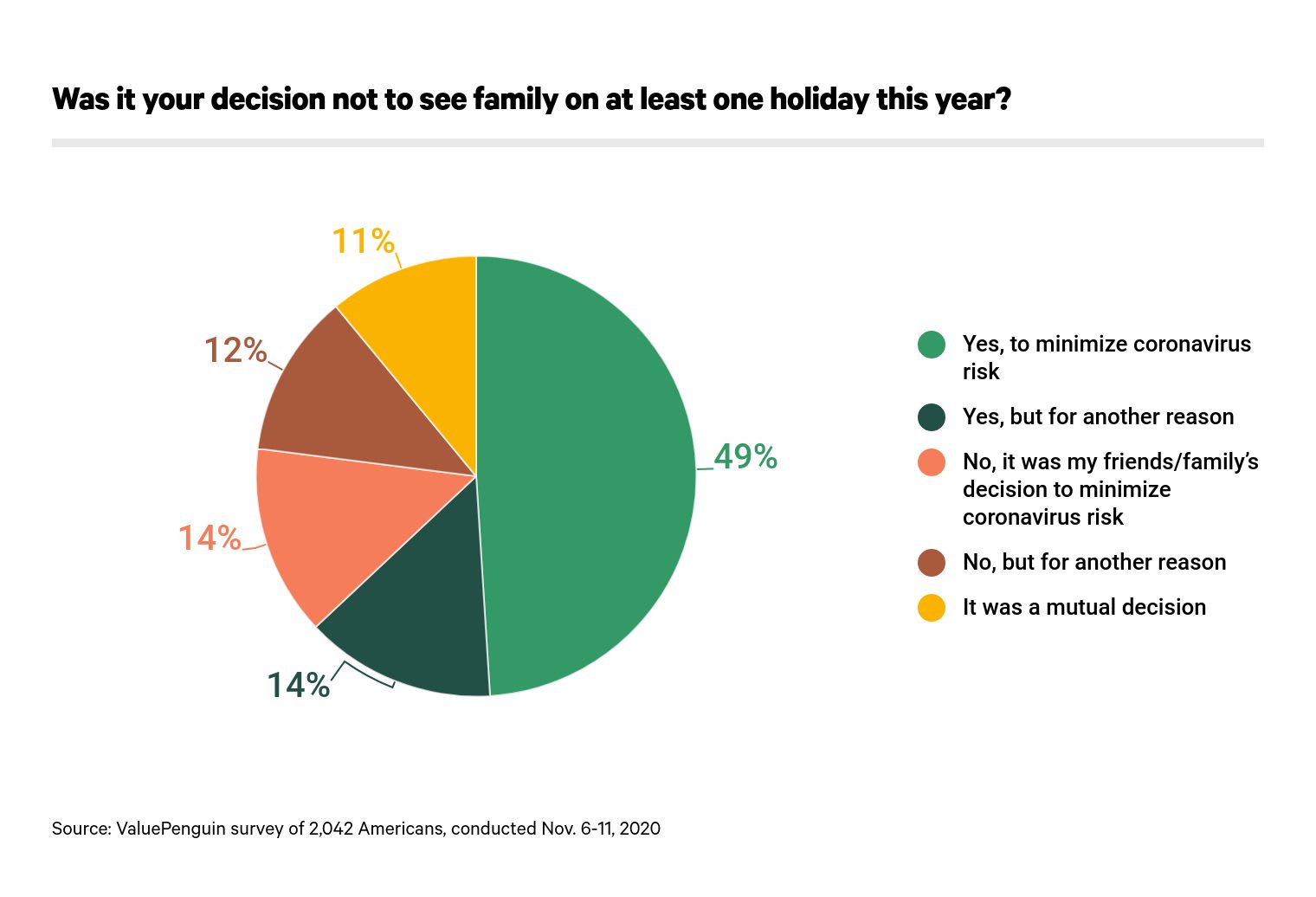
Of those who reported that they wouldn't see loved ones for at least one of the upcoming holidays, 49% made the decision themselves. A portion, on the other hand, said their loved ones were responsible for the decision to remain distant over the holidays.
People employ many ways to alleviate the uncomfortable feelings that holidays bring
Americans advocated for a range of activities that they use during the holiday season to practice self-care and alleviate the stress and loneliness that the season can bring. Six in 10 watch movies or television during the holidays as a remedy against stress and loneliness, followed by exercise and reading.
Less than 1 in 10 doesn't do anything to relieve their stress. People from the silent generation were the least likely to seek out a restorative from the difficult feelings that can come with the holiday season. Conversely, just 5% of Gen Zers and millennials didn't seek any avenues for self-care — the lowest of any group.
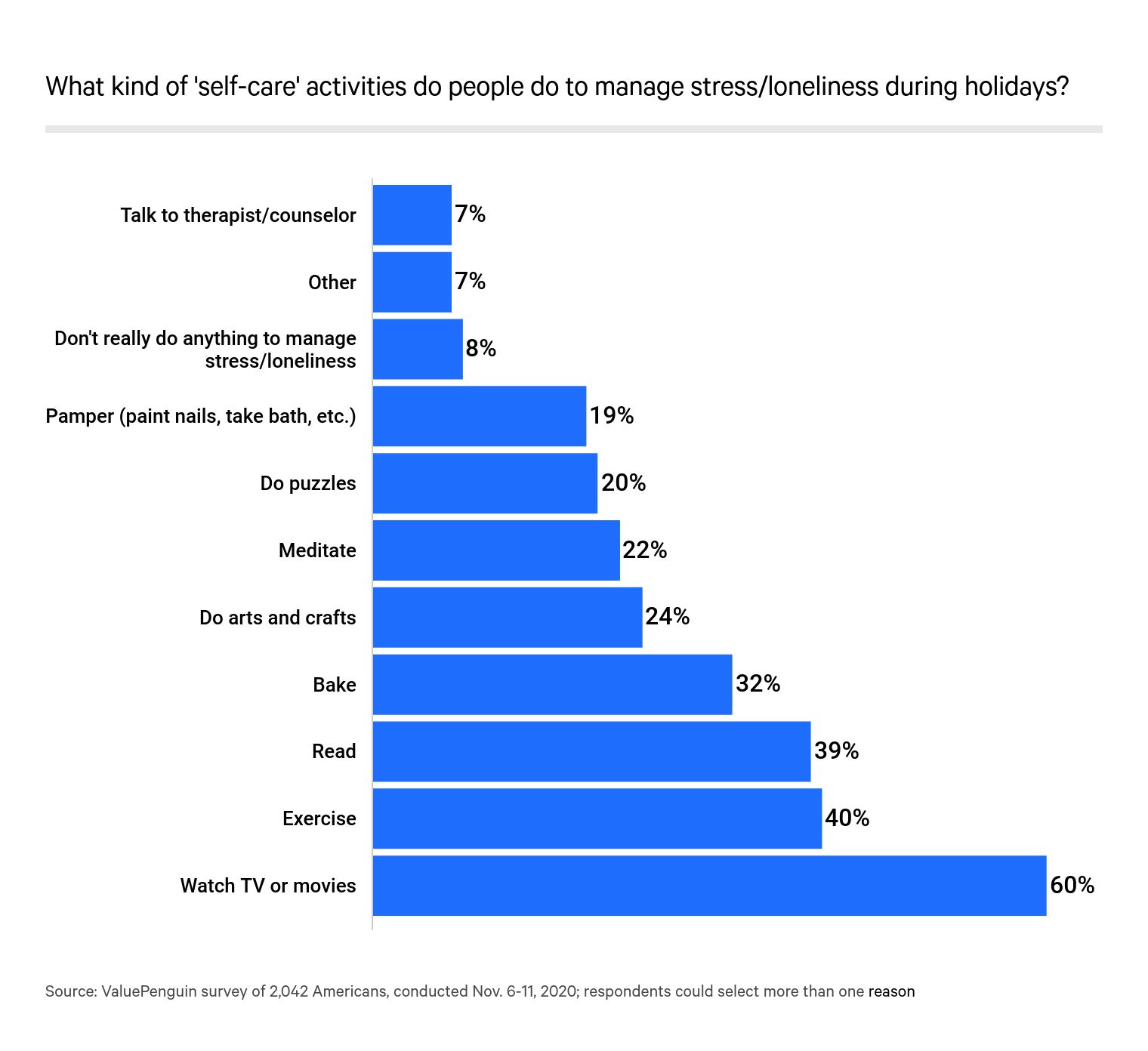

Although there are a number of new stressors that the holiday season will bring, the loneliness many people experience is related to the season itself. Thirteen percent of the people we polled said they have been diagnosed with seasonal affective disorder, a condition characterized by depression that occurs at the same time each year. Another 29% reported feeling symptoms of seasonal affective disorder, though they weren't diagnosed.
No matter the source of one's depression and loneliness during the holiday season, it's important to seek the right care for you. Many insurance providers are responding to the coronavirus pandemic's increased burdens on their policyholders' mental health by increasing their virtual-visit coverage. Since all health insurance providers are different, it's best to reach out to your insurer to get details about the coverage it offers.
Methodology
ValuePenguin commissioned Qualtrics to conduct an online survey of 2,042 Americans, with the sample base proportioned to represent the overall population. The survey was fielded Nov. 6-11, 2020.
We defined generations as the following ages in 2020:
- Generation Z: 18 to 23
- Millennial: 24 to 39
- Generation X: 40 to 54
- Baby boomer: 55 to 74
- Silent generation: 75 and older
